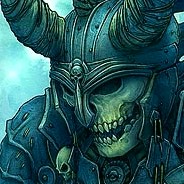Выписать 10 глаголов, определив время и залог ! William Harvey was born at Folkestone, Kent, England in1578. Will, as he was called in the friendly family, had six brothers and two sisters. They were affectionate to each other, though a little afraid of the father, who was strict. William’s father was a merchant.
In 1588, when William was ten, he was sent to King’s College in
Canterbury. It was a place with strict discipline for those days, but
Will was used to discipline* and he worked very hard. Before Will left
school he decided to become a doctor. His father was very pleased and
sent him to Cambridge for medical training.
William Harvey took his Bachelor of Arts degree* at Cambridge
and went to the Padua University in Northern Italy, the most famous
medical school in Europe at that time. He was tutored by the scientist
and surgeon Hieronymus Fabricius.
Fabricius, the anatomy teacher, who was fascinated by anatomy,
discovered that the veins in the human body had one-way valves, which
allowed the blood to flow in one direction only. But he didn’t know
their function. They were open like a door when the blood flowed. The
discovery of the valves showed Harvey that there could be no passing
The Doctor Who Discovered the Circulation of the Blood of the blood to and fro along the same vein, as men had believed until his time.
It was Harvey who took the foundation of Fabricius’s teaching,
and went on to solve the question of what part the valves played in the
circulation of blood through the body. It was in Padua where William
got his first clue about* the circulation of the blood.
Harvey wanted to find out the facts by personal observation but
not from the writings of others. He watched the work of the heart of
living animals.
From such observations Harvey concluded rightly that the heart
beat* or pulse comes when the heart contracts, and that this contraction
forces the blood out from the heart into the arteries. This conclusion
was the result of his observations of the structure of the heart itself.
At the same time Harvey studied the blood flow in the veins. In one
experiment he bandaged the arms of living men. When William did so the
veins became swollen, and he could see them quite easily. On pressing*
the finger along a vein in the direction away from the heart Harvey found
that in fact that part of the vein was without blood. It confirmed vividly
that the veins allow the blood to pass only towards the heart.
At the age of twenty-four, in 1602, Harvey left Padua with his
degree of Doctor of Medicine and returned to England.
On his return from Italy in 1602, Harvey showed himself* as a
physician. His career was helped by his marriage to Elizabeth Browne,
daughter of Elizabeth 1’s physician, in 1604. Harvey decided to set up
in London and soon became a famous doctor.
In 1607 William Harvey was elected a Fellow of the Royal College
of Surgeons and Physicians at Bartholomew Hospital.
William Harvey had made little progress in his study of the heart
but he continued his experiments. He decided to tie threads round
arteries and veins. In this way he confirmed that the blood in the
arteries flows from the heart, while in the veins it flows towards the
heart.
In 1615 Doctor Harvey became an experienced lecturer at the
Royal College of Physicians. The next year, William Harvey began to
demonstrate his theories at the lectures.
During ten years Harvey retested his conclusions by repeated
experiments*. He was very cautious and did not want to publish his
results. Only under the great pressure of his friends his discoveries
became known to the world. His work was published (in Latin) in
Frankfurt, Germany, in 1628 under the title Anatomical Disquisition
on the Motion of the Heart and Blood, where Harvey explained how
the heart propelled the blood in a circular course through the human
body. His discovery was received with great interest in England, but his
book aroused much criticism and many doctors spoke against it. Some
of his patients thought that Harvey was mad and left him.
Soon medical men saw that William Harvey was right. Time passed
and they began to believe in his theory and when the Civil War of
1642–1649 began, Harvey was made court physician. He continued
to retain a close relationship with the royal family.
Harvey was a quiet and clever man. His calmness and skill in
experiment and his perfect understanding of the problem enabled
him to carry out scientific work which even today, more than three
hundred years later, compels the admiration of all those who study
the human body.
William Harvey died in 1657 and was buried in Hampstead Church
in Essex. That church has a special tower which was built by the Royal
College of Physicians in the 19th century. The tower was built to honour
William Harvey’s memory.
162
194
Ответы на вопрос:
1) nine
2)A lot of people come to London
3) Monica from in London
4)She's favourite place in London is Trafalgar Square
5) Monica go there with she's dad
Реши свою проблему, спроси otvet5GPT
-
Быстро
Мгновенный ответ на твой вопрос -
Точно
Бот обладает знаниями во всех сферах -
Бесплатно
Задай вопрос и получи ответ бесплатно

Популярно: Английский язык
-
Переведите на - правильно и без заранее : ) сегодня я отдыхала у бабушки на...
 ЯЛюблюЛето02.05.2021 07:31
ЯЛюблюЛето02.05.2021 07:31 -
10 желаем вам любви и счастья много, чтобы для грусти не было причин! пусть...
 Shvabra33526.08.2021 14:15
Shvabra33526.08.2021 14:15 -
умоляю очень надо A. Match the words to form collocations. 1. exchange a the...
 zalomnovavk13.02.2021 14:27
zalomnovavk13.02.2021 14:27 -
Спикер любит тратить немного больше, чтобы убедиться, что это 50-процентный...
 цццрпппр125.07.2021 00:41
цццрпппр125.07.2021 00:41 -
Define the following using the vocabulary: 1) Internet 2) World Wide Web 3)...
 alex0the0human06.01.2022 01:48
alex0the0human06.01.2022 01:48 -
Which of the listed below statements are true/false. Specify your answer using...
 провпр20.02.2020 01:18
провпр20.02.2020 01:18 -
Подпишитесь на UVENTIK!...
 Danchik204629.09.2022 14:32
Danchik204629.09.2022 14:32 -
Поставить глагол, выбрав нужную форму Future Simpe, Present Progressive или...
 Настя3456568829.09.2020 19:11
Настя3456568829.09.2020 19:11 -
Поместите глаголы в Напишите правильные формы глаголов. Затем сопоставьте во...
 Sadist70224.10.2020 10:09
Sadist70224.10.2020 10:09 -
Read the definitions and write down the words. 1. someone who lives very near...
 MomoiSatsuki1615.08.2020 09:59
MomoiSatsuki1615.08.2020 09:59

Есть вопросы?
-
Как otvet5GPT работает?
otvet5GPT использует большую языковую модель вместе с базой данных GPT для обеспечения высококачественных образовательных результатов. otvet5GPT действует как доступный академический ресурс вне класса. -
Сколько это стоит?
Проект находиться на стадии тестирования и все услуги бесплатны. -
Могу ли я использовать otvet5GPT в школе?
Конечно! Нейросеть может помочь вам делать конспекты лекций, придумывать идеи в классе и многое другое! -
В чем отличия от ChatGPT?
otvet5GPT черпает академические источники из собственной базы данных и предназначен специально для студентов. otvet5GPT также адаптируется к вашему стилю письма, предоставляя ряд образовательных инструментов, предназначенных для улучшения обучения.
